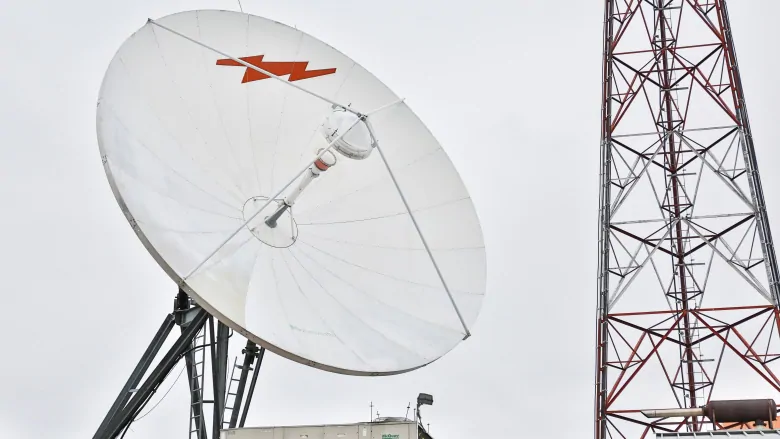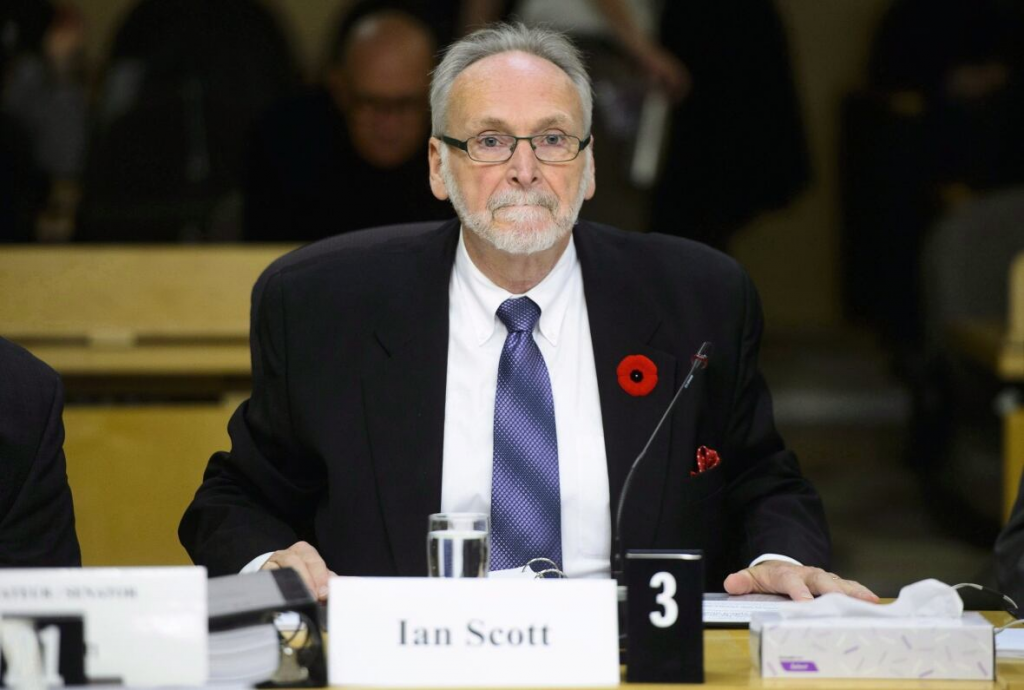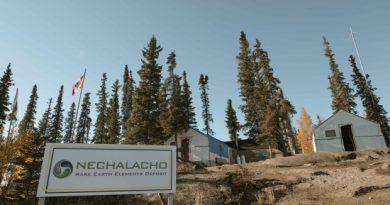Canadian Telecom businesses say recent federal funding solidifies Northwestel monopoly

Smaller players in the Northwest Territories’ telecom industry say the money given to Northwestel to help improve internet speeds only solidifies the company’s monopoly in the North.
Earlier this week, the Canadian Radio Television and Telecommunications Commission (CRTC) committed $62.4 million out of a pot of $72.1 million to four Northwestel projects in the N.W.T. and Yukon. This was the commission’s first round of funding, dedicated to internet projects in northern communities.
Lyle Fabian, the president of KatloTech Communications, is looking to build a large scale fibre optic network through the N.W.T., Yukon and northern parts of B.C. and Alberta over the next twenty years. KatloTech would then build a shared wireless internet network, similar to what students access on university or college campuses, that everyone in a community could access.
Fabian did not even apply to the CRTC’s fund last year because he already knew where the money was going to go.
“We forfeited the grant application because Northwestel would come out on top,” he told CBC. “And this just, you know, proved my point.”
‘They’re not breaking that monopoly’
Jean-Francois Dumoulin, the vice-president of regulatory and government affairs at Ice Wireless, told CBC they submitted a proposal to the CRTC in this first round of funding.
If successful, the company would upgrade their existing 3G services in Hay River, Behchokǫ̀ and Norman Wells to LTE internet speeds, and expand their services to new communities like Fort Smith and Aklavik.
Dumoulin said the CRTC’s support for Northwestel’s projects could make it more difficult for his company, and others in the territory, to offer competitive rates.
“[Federal] government policy … has been to rely on competition to keep prices low,” Dumoulin said. “If you’re pouring all the money into a single organization, it makes it very difficult for any other company to compete.
“They’re not breaking that monopoly.”
Dumoulin said he wants stringent requirements for Northwestel to control their pricing, so competitors like Ice Wireless can offer good prices.
Ice Wireless hasn’t heard back yet on the status of their proposal, so it’s possible the CRTC could be pushing their proposal forward to another stage of funding, Dumoulin said. The company has other proposals for improved mobile data service for the N.W.T. and Nunavik in the CRTC’s second round of funding.

Increasing competition a ‘laudable objective’
Ian Scott, chairman for the CRTC, told CBC earlier this week that it was “not a shock” that Northwestel got most of the funding because they “put forward the best projects.”
A 2019 CRTC policy direction says the commission must consider how its decisions “encourage all forms of competition and investment” in Canada’s telecommunications industry.
Scott said encouraging competition for northern internet providers is a “laudable objective” but that the focus should still be on improving internet speeds to 50 Mbsp download and 10 Mbsp upload in all communities.
“I’ll start with let’s get 50/10 service where we can in these communities, then we will try … and do everything we can to further consumer choice and competition,” Scott said.
Construction to start early 2021
Curtis Shaw, the president of Northwestel, said no other companies are able to offer the same size and scale of project — which is why they got the CRTC funding.
“The communities are just small, and one of the reasons we got funding is no one has really stepped up to build this type of infrastructure,” Shaw said.
“If there are interests from wholesalers that want to get in on the business … there’s open access to anyone that wants to purchase bandwidth from us.”
Northwestel will install 316 kilometres of new fibre optic line in the N.W.T. and Yukon. The CRTC says that will connect 4,680 households in 19 Yukon communities with 50 Mbps download and 10 Mbps upload speeds along with unlimited data usage. In the N.W.T., 3,643 households in 18 communities will get 50/10 speeds and unlimited data after the completion of a fibre line project.
Eight N.W.T. communities and Old Crow, Yukon, will also be getting improvements to their satellite connectivity. These communities will get 50/10 speeds once low-orbiting satellites, a new technology that will beam the internet directly into homes, will be available.
The CRTC gave Northwestel three years to complete their projects from start to finish. Shaw said the company is “pretty well positioned” to get it done on time.
Shaw said they will be hiring project managers, engineers and labourers from the communities for their projects, like they did with their most recent fibre-to-home project in Hay River. Northwestel is not sure how many new hires they’re going to need.
Shaw said construction will start on all four internet projects early next year, with some customers seeing improved internet speeds by fall 2021.
Related stories from around the North:
Canada: Canada announces $72M in broadband internet improvements for northern communities, CBC News
Finland: Northern Scandinavia to pioneer commercial flights with electric planes, The Independent Barents Observer
Norway: New satellites to boost communications in Arctic Norway, The Independent Barents Observer
Russia: Russian military to get fast, secure internet through trans-Arctic cable, The Independent Barents Observer
United States: Alaska’s first wireless 5G network to be built in Anchorage, Alaska Public Media



